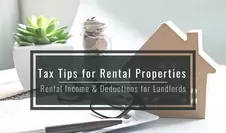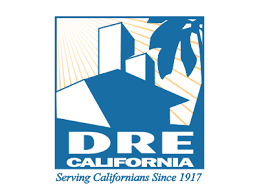 Rental properties in affluent areas of Los Angeles can be cash flowing tremendously- so it's important to have property bookkeeping and tracking of expenses, and understand the tax advantages compared to other types of investments. One of the biggest benefits of owning rental property come tax time are the special opportunities to deduct expenses related to your rental property and rental income. When you rent a property to others as a landlord or real estate investor, you must report the collected rental income as taxable income. The following article provides tax tips from the IRS for landlords reporting rental income and list of acceptable tax deductions offered to rental property owners. WHAT IS CONSIDERED RENTAL INCOME? Rental income includes all amounts you receive as rent from residential occupancy of your properties. You must include all income collected as rent from all your properties. Advanced rent received during the year, even if it is meant to cover rent in a future year, must be reported on the current year’s return. For example, if you have a 12-month lease that began in June 2016, and your tenant paid you first and last month’s rent up front, you would report the rent for June 2016 (first month’s rent) and May 2017 (last month’s rent) as rental income earned in 2016. Security deposit funds are not included in your tax return when you first receive them from a renter. Only if you keep all or a portion of the security deposit funds during the year as part of the lease terms, you must include the amount of the deposit you kept in your reported income that year. Fees collected from a tenant for things like late rent payments, pet fees, parking spaces, or early lease cancellation fees must be included in your total rental income for that year. Services received, instead of money, as rent, must be included as the fair market value of the services in your rental income. For example, your tenant is a painter and offers to paint your rental property instead of paying rent for two months. If you accept the offer, include in your rental income the amount the tenant would have paid for two months worth of rent. RENTAL PROPERTY TAX DEDUCTIONS FOR LANDLORDS The following list of landlord deductions is provided by the IRS to help investors at tax time minimize their tax burden. As you begin a new year, or prepare your taxes from the preceding year, make sure to keep excellent records of the following tax deductions available to landlords come tax time. The only way to make sure you are maximizing your tax deductions is to maintain proper records of all your expenses.
Make sure to speak with your tax professional if you have any questions or concerns about the tax opportunities available to rental property owners. Based on Rentec Direct Blog post.
0 Comments
Legal Alert from KTS Law
Under SB 329 and SB 222, all landlords in California will be required to accept Section 8 and VASH vouchers and other forms of rental assistance and to consider them as part of an applicant’s income. Both will go into effect on January 1, 2020. SB 329redefines source of income as “lawful, verifiable income paid directly to a tenant or to a representative of a tenant, or paid to a housing owner or landlord on behalf of a tenant, including federal, state or local public assistance, and federal, state, or local housing subsidies, including, but not limited to, federal housing assistance vouchers issues under Section 8 of the United States Housing Act of 1937.” SB 222 adds to the definition of source of income HUD Veterans Affairs Supportive Housing (VASH) vouchers and clarifies that a landlord is not considered a representative of a tenant unless the source of income is a VASH voucher. SB 222 also adds military and veteran status as new protected classes under the FEHA. Many local jurisdictions, such as Alameda, Berkeley, Corte Madera, East Palo Alto, Fremont, Foster City, Hayward, Los Angeles (City and unincorporated areas), Marin County (unincorporated areas), Santa Clara County (unincorporated areas), City of San Diego, City of San Francisco, City of San Jose, Santa Monica, and Woodland have existing ordinances that include Section 8 and other rental assistance in their definition of source of income. The passage of SB 329 and SB 222 means that California residential landlords throughout the state will no longer be able to say they don’t participate in the Section 8, VASH or other rental assistance programs. It is anticipated that tenant’s rights groups will be conducting testing to see whether landlords are aware of and are complying with the law. Although the changes do not go into effect until January 1, 2020, landlords who don’t currently participate in rental assistance programs are advised to respond to inquiries about whether they accept Section 8, VASH or other rental assistance that although they do not currently participate, they will be participating effective January 1, 2020. The FEHA states that it is unlawful to make, print or publish or cause to made, printed or published, any notice, statement or advertisement with respect to the sale or rental of a housing accommodation that indicates any preference, limitation, or discrimination based on any enumerated protected class, including source of income. Accordingly, it is important that all advertising (including ads posted on third party websites such as Craigslist) be revised to remove any references such as “No Section 8” or “We do not participate in Section 8” before January 1, 2020. The FEHA retains language that in instances where there is a government subsidy, it is unlawful to use a financial or income standard in assessing eligibility for the rental housing is that is not based on the portion of the rent to be paid by the tenant. The net effect of this language, when combined with then new definitions of source of income, is that the voucher amount must be considered as part of the tenant’s income and any income standard applied by the landlord must be based on the portion of the rent which would be paid by the tenant, rather than the total contract rent. Nothing in either SB 329 or SB 222 prevents a landlord from requiring a tenant with a Section 8 or VASH voucher or other rental assistance to meet the landlord’s other criteria, such as credit and rental history. Landlords with questions about the Section 8 program should contact the local Housing Authority in the area where their property is located. From https://www.kts-law.com/section-8-and-source-of-income-protections-sb-329-and-sb-222/ This article is for general information purposes only. Our courtesy notifications are not meant to be exhaustive and do not take the place of legislative services or membership in trade associations. Laws may have changed since this article was published. Legal Alert from KTS Law
On June 29, 2023, the California State Legislature filed SB 564 with the Secretary of State, which increases statutorily determined fees for serving, executing, and processing certain court documents by Sheriffs’ and Marshals’ offices. California law requires the Legislature to provide for an elected county Sheriff, provide for the duties of the Sheriff, and prescribe fees for serving, executing, and processing required court notices, writs, orders, and other services provided by Sheriffs and Marshals. Sheriffs’ offices are required to serve civil process, including summons, warrants, evictions, wage garnishments, small claims documents, levies on property, writs, and other court orders. As part of this process, they are permitted to collect statutorily set fees to cover the cost of providing these services. The passage of SB 564 has increased those fees for services provided by Sheriffs and Marshals, which is the first fee increase since 2015. Each fee increase is specified in the below chart. Due to these increases in the hard costs of your cases, you will see that the fees advanced and charged to your cases will be increased on your billing statements. These new increased fees will be effective and assessed beginning January 1, 2024. In support of the passage of SB 564, the Legislature has noted that the overall cost of business has, along with the cost of living and inflation, skyrocketed in recent months. The Sheriffs’ and Marshals’ offices have stated that they have had a steady increase in personnel and resource costs since 2014 (when the last fee increase was approved), creating revenue deficits within their civil units. They state that this has compounded the need to increase the fees for the services they provide. Additionally, the bill’s proponents argued that recently enacted legislation, namely AB 2791 (Bloom), Chapter 417, Statutes 2022, which requires officers to accept electronic submission of requests for service of process beginning in 2024, will further increase their costs of business. SB 564 increases the statutorily capped fees Sheriffs’ and Marshals’ Offices can collect to fulfill their legal process services, due to inflation and the increase of costs to provide these services. This bill retains the existing fee waiver process to ensure low-income individuals are not disproportionately impacted by the fee increase. The full text of SB 564 can be viewed here. From KTS This article is for general information purposes only. Our courtesy notifications are not meant to be exhaustive and do not take the place of legislative services or membership in trade associations. Laws may have changed since this article was published. |
Archives
July 2024
Categories
All
|
Locations |
KEYBOXDRE 02086236About Our Broker: Los Angeles native, with a Bachelor's and Master's from Stanford University.
California Real Estate Broker Exam Perfect Score. |
What Our Clients Are Saying"Keybox is a rare balance of both approachable and professional, always responds quickly and efficiently when I reach out, and I trust the Broker completely. Highly recommended!!" |


